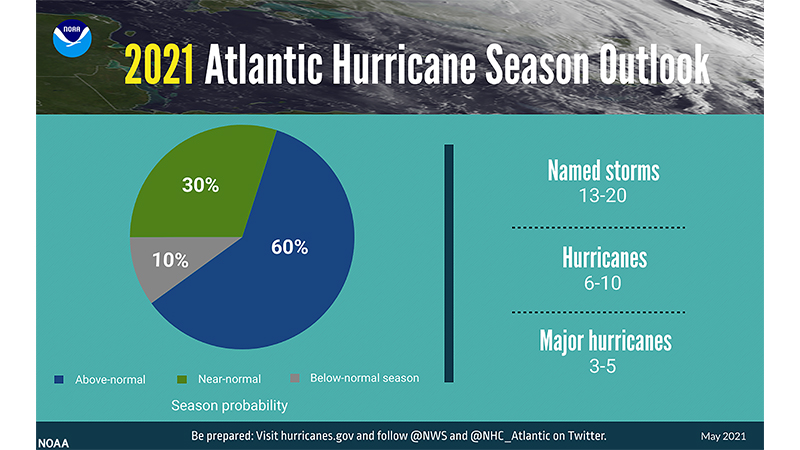Coast Guard urges preparedness for 2021 hurricane season
Published 10:54 am Monday, June 7, 2021
|
Getting your Trinity Audio player ready...
|
NEW ORLEANS — The Coast Guard reminds all boaters to prepare for the 2021 hurricane season.
The Atlantic hurricane season runs from June 1 to November 30, with the peak occurring between mid-August and late October.
The National Oceanic and Atmospheric Administration’s Climate Prediction Center is predicting another above-normal Atlantic hurricane season. Forecasters predict a 60% chance of an above-normal season, a 30% chance of a near-normal season, and a 10% chance of a below-normal season.
All boaters should make sure they are ready for the hurricane season and prepare for the worst case scenario.
“It is essential for the safety of you and your family to prepare for a hurricane well before it arrives,” said Capt. Harper Phillips, Chief of Incident Management for District Eight. “Being prepared is key during hurricane season. We highly recommend all boaters prepare a hurricane plan for their vessels now. It’s also paramount to pay close attention to the weather both ashore and out at sea and heed the messages, warnings and orders of local authorities.”
The Coast Guard recommends the following preparedness tips for this hurricane season:
- Prepare a kit. Ensure you and your family have a disaster kit ready to go in case of an emergency. For more information on items to include in a kit visit Ready.gov preparedness tips.
- Get to know your surroundings. Know the elevation of your house and property. Hurricanes often bring storm surge, which is considered the greatest threat to property and life during any tropical storm. Know your communities’ evacuation routes and how you would evacuate to higher ground. For more information on potential storm surge areas visit NOAA’s storm surge site.
- Check the weather: The Coast Guard mobile app for boating safety is a tool to check marine weather from your phone. With the mobile app, you can check the weather at nearby NOAA buoys, which provide wind speed and direction along with wave height. Checking weather any time you plan to get underway and throughout your time on the water is highly recommended.
- Secure your boats: Review your hurricane plan with your local marina, ensure you have a plan to both bring your boat in and strap it down ashore or ensure it is properly equipped to ride out the storm at the marina.
- Listen to local officials: When it comes to hurricane response and preparedness, the most important link in the chain is you: prepare your boat for the season, have a hurricane mooring plan and monitor channel 16 on your VHF radio when on the water. Prior to planning a voyage, keep an eye on the weather, port conditions and other hurricane warnings.
For more information on hurricane preparedness visit Ready.gov and NOAA
For more information follow us on Facebook and Twitter.






